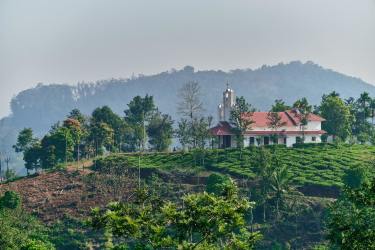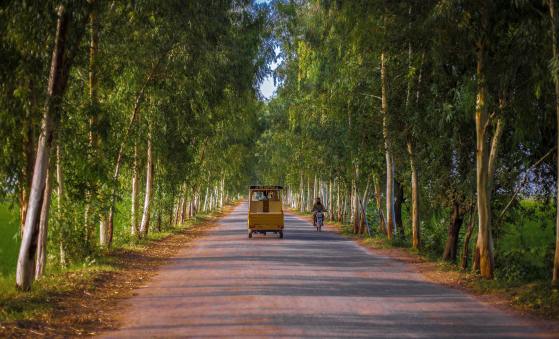
Around 600 families in a coastal village in Kerala’s Ernakulam district are facing renewed uncertainty after a Muslim organisation moved to challenge a High Court order that had offered the villagers hope of securing their land rights.
The residents of Munambam, most of them Latin-rite Catholics alongside several Hindu households, have spent three years resisting eviction efforts by the Kerala Waqf Board. The board maintains that much of the village sits on “waqf” land, property held in permanent charitable trust under Islamic law and therefore not subject to sale, inheritance or transfer.
Villagers insist that the land carried no such classification when they bought individual plots between 1988 and 1993. They argue that the property was later labelled as waqf land in 2008 by a state-appointed committee, without their knowledge or consent.
On 10 October, the Kerala High Court upheld the state government’s decision to form an inquiry commission to examine the families’ claims. The ruling was welcomed by residents, who saw the commission as a step toward clarifying their legal ownership.
However, on 18 November, the Kerala Waqf Protection Forum (WPF) filed an appeal before the Supreme Court seeking to overturn that decision. The forum argued that the High Court exceeded its authority by interfering while a case concerning the same land is still pending before the Waqf Tribunal, which it said is the legally designated body for such disputes. The appeal also claimed that the court’s order effectively validated government overreach in setting up the inquiry commission, according to legal media outlet Bar and Bench.
Father Antony Xavier, parish priest of Valankanny Matha Church, which stands on the disputed land, said the development had unsettled the community. “This appeal is a matter of concern for us, as we were hopeful of a peaceful settlement,” he told UCA News.
Observers warn that the situation risks taking on communal overtones, with Christian and Hindu families increasingly feeling pitted against Muslim organisations. Senior church and Muslim leaders have been working quietly to ease tensions. Bishops from all 12 Latin-rite dioceses in Kerala met with leaders of the Indian Union Muslim League on 18 November to discuss possible steps toward an amicable resolution.
Residents say the dispute came to light only in January 2022, when authorities abruptly stopped accepting their land tax payments, prompting alarm and confusion. A public protest began soon after, later gaining the backing of Catholic bishops, other Christian denominations and Hindu groups.
“Our protest has entered the 403rd day today, and we will continue until our people get back their land rights,” Father Xavier said on 19 November.
Meanwhile, a team of lawyers is preparing to explore legal avenues for the families at the Supreme Court. Joseph Jude, vice-president of the Kerala Region Latin Catholic Council, said the situation is worrying because the villagers are not direct parties to the new appeal.
“Our stand is very clear: our people purchased their land from a Muslim educational institution after fulfilling all legal requirements,” he said. Jude noted that the Kerala High Court had previously found the Waqf Board’s 2019 move to declare the land as waqf property to be legally unsound.
As the legal battle intensifies, villagers remain anxious about the future of their homes and church, watching closely for the next steps from India’s top court.
Adapted from UCA News.




